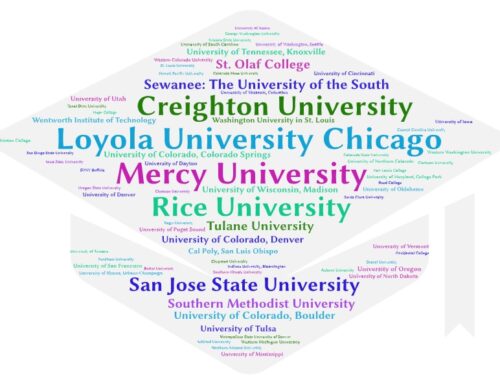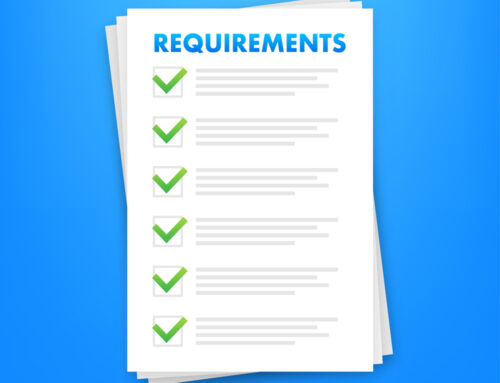 I recently finished watching the fourth and final season of Never Have I Ever on Netflix. The show chronicles how the main character, Devi Vishwakumar, and her friends navigate the academic, social, and romantic challenges of high school.
I recently finished watching the fourth and final season of Never Have I Ever on Netflix. The show chronicles how the main character, Devi Vishwakumar, and her friends navigate the academic, social, and romantic challenges of high school.
In the fourth season, Devi is a senior at a public high school in California and is pursuing her dream of going to Princeton University. Having wanted to attend Princeton since she was in first grade, Devi decides to apply Single Choice Early Action (EA). The remaining episodes contain several lessons about what to do and perhaps more importantly, what not to do during the college admissions process. Spoiler alert: this blog post will reveal major plot points of Season 4.
Lesson #1: Don’t apply Early Decision (ED) to a college you’ve never visited. In the fall of their senior year, Devi and a select group of her classmates go on a college visit trip to the East Coast, accompanied by their school’s college counselor (Ms. Warner) and a teacher. During the trip, one of Devi’s friends, Ben, visits Columbia University. While there, he spends time with several current students, and it’s clear that Ben feels like he doesn’t fit in. Yet, because he already applied to Columbia ED, he will be forced to go there if he’s admitted.
If you’re going to apply to a college Early Decision, it is absolutely critical that you visit first. While a school can look and sound fantastic on its website and in its brochures, you can’t get a true feeling for it without seeing the campus. Since Early Decision is a binding commitment, if you aren’t able to visit before a school’s ED deadline, you should not apply ED. For more on the importance of college visits and how to make the most of them, see this blog post.
Lesson #2: Don’t decide where to apply/not apply based on where your friends are applying. Devi’s best friend, Fabiola, is an excellent student and wants to study engineering. Yet when both her mother and Ms. Warner suggest she consider Princeton because of its outstanding engineering program, she insists she can’t apply there because it’s where Devi wants to go. Ultimately, Fabiola decides to apply to Princeton Early Action but lies to Devi about doing so. Then, when Devi learns that Fabiola not only applied EA to Princeton but was admitted (while Devi was deferred), the girls get into a huge fight.
When applying to college, it’s essential to make decisions based on what is best for you. You shouldn’t apply to a school because your best friend/boyfriend/girlfriend is applying there, and you shouldn’t not apply for the same reason. It’s ok to be a little selfish in this process – after all, it’s about your future, not anyone else’s.
Lesson #3: Don’t apply to a college early and not prepare any other applications in the meantime. Devi is so certain that she’ll be admitted to Princeton that she doesn’t apply to any other colleges or even work on any other applications before Princeton releases its Early Action decisions. When she gets deferred at Princeton, she has to spend her winter break completing applications for other colleges.
With most EA/ED decisions coming out in mid-December and many Regular Decision deadlines falling between January 1-15, it is unwise to wait for an EA or ED decision before working on (or better yet, finishing) your other applications. By completing your remaining applications ahead of an EA or ED release, you’ll avoid the stress of applying last-minute, will have more time to write and polish your supplemental essays, and will actually be able to enjoy your winter break.
Lesson #4: Don’t apply only to highly selective colleges. After Devi is deferred at Princeton, she ignores the advice of her mom and Ms. Warner and applies only to the other Ivy League colleges. She is then denied from all of them except for Princeton, where she is waitlisted. Devi talks with Ms. Warner, her friends, and her family about the possibility of not going to college in the fall and having to apply again. On her last day of high school, she is admitted to Princeton from the waitlist. But the outcome could have been far worse (and probably would have been if this wasn’t a TV show).
Devi’s situation highlights the importance of having a balanced college list. If you are going to apply to highly selective (or, as many in college consulting have taken to calling them, “highly rejective”) colleges, you also need to apply to some schools that you’re more likely to get into. There’s nothing wrong with having a dream school, but you should have some more realistic options as well. You don’t want to end up in a situation where you don’t get in anywhere and have to figure out a Plan B.
Lesson #5: Don’t let your grades slip at the end of senior year. Devi’s friend, Ben, has been an overachiever all his life, but as graduation approaches, he starts to feel burned out. Another student, Trent, tells Ben that since he got in early to Columbia, he shouldn’t worry about his second semester grades. Ben replies that if his grades slip, Columbia will rescind his admission offer, but Trent insists that’s a myth, so Ben slacks off. When Ms. Warner calls Ben into her office and says he’s at risk of failing his classes and losing his spot at Columbia, he has to scramble to catch up.
Senioritis poses a real and dangerous threat to many students’ college aspirations. And contrary to Trent’s insistence that colleges don’t rescind admission offers due to poor grades, they definitely do, as explained in a recent U.S. News and World Report article for which I was interviewed.
There you have it: five important college admissions-related lessons from an otherwise silly (though entertaining) TV show. I hope you will learn from Devi’s mistakes!





